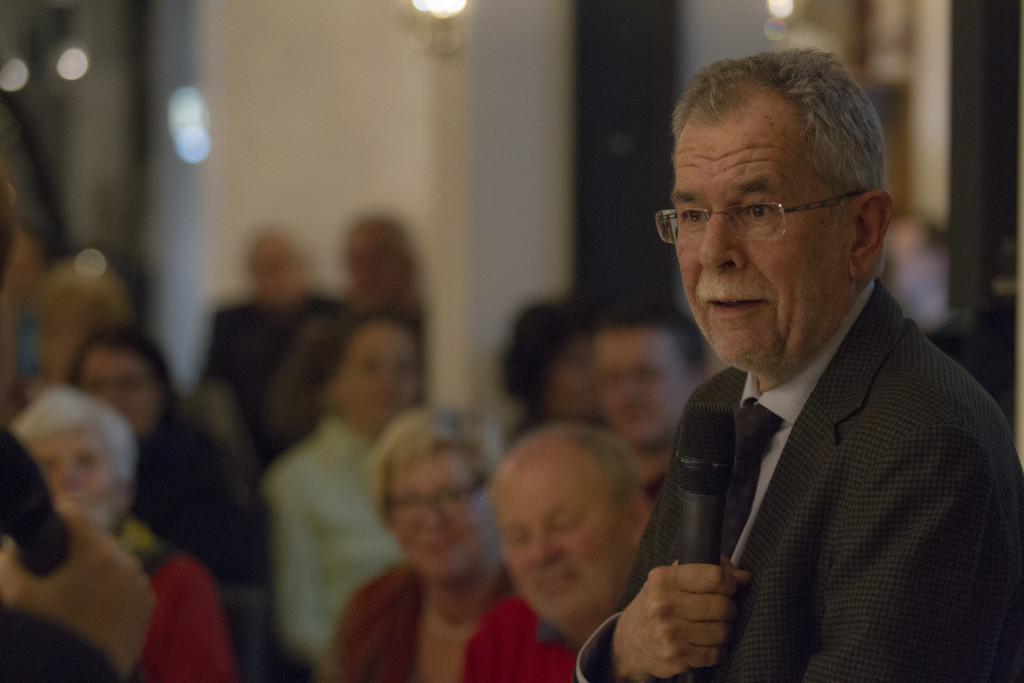Further Austrian presidential election delay gives green Van der Bellen hope

The rerun of the Austrian presidential election has been pushed back to December 4th after Wolfgang Sobotka, the county’s Interior Minister, sought parliamentary approval to delay the vote.
A technical problem in which the glue for the envelopes containing completed postal votes is failing to stick causing the ballots to become invalid. The rerun had been scheduled to be held on October 2nd, but Austrian voters will now face a further two month delay. It is another twist in an election that has stretched over nearly a year.
Norbert Hofer of the far-right freedom party is currently ahead in the polls, boosted by terrorist incidents over the summer and tensions over the refugee crisis. It is too early yet to tell whether the additional time former Green Party leader Alexander Van der Bellen has to campaign will enable him to close the gap. However, there are some indications the polls have recently begun to narrow, and there remains a strong chance of victory and a Green president.
This all comes after the constitutional court overturned May’s second-round vote in which Van der Bellen beat Hofer by just over 30,000 votes. Hofer, riding the wave of anti-migrant sentiment that has been sweeping Europe, came out on top in the first round with 35% of the vote. In the process defeating the centre-right Austrian People’s Party and centre-left Social Democratic Party which have dominated post-war Austrian politics, an event described as a ‘political earthquake’.
Many feared that the second-round runoff would see a far right politician holding the office of President in a European country (even if the role has been traditionally ceremonial). Van der Bellen, however, had other ideas.
Standing as an independent with Green Party backing, Van der Bellen pitched himself against the reactionary rhetoric of Hofer. The contest came down to the wire, Hofer appeared to be leading but when the absentee ballots were finally accounted for Van der Bellen had scraped to victory with 50.3% of the vote.
European Greens celebrated a second Green head of an EU state (and a first progressive Green unlike Latvian Raimonds Vējonis). Much of the European centre also sighed with relief after seeing the far-right stopped in its tracks, if only just.
That didn’t last. Shortly after the Brexit vote upended the European political elite, the Austrian constitutional court declared the runoff result invalid because 80,000 votes had become “contaminated”. The whole campaign had to be run again, even if, to quote these researchers, the chance that the contaminated votes would have changed the outcome of the election is “ridiculously low”.
Just as before Hofer has pursued the renewed campaign focused on the refugee crisis and stocking racial divisions. He is helped in this by ‘centrist’ politicians, including the Interior Minister and Foreign Minister Sebastian Kurz who have taken increasingly hard lines on refugees and creating the political environment for the far right to exploit.
Further, Hofer has sought to play up the tensions between the EU and Turkey, particularly following the attempted coup and Chancellor Christian Kern’s subsequent calls to end EU accession talks with Turkey. Hofer has, of course, gone further and demanded a pause be placed on granting Austrian Citizenship to Turks.
The events that have dominated European politics over the summer such as terror attacks and Burkini bans have also been debated by the candidates, although Brexit has had surprisingly little impact. Slightly stranger debates have emerged as well, including one in which Van der Bellen had to deny he has cancer. I guess in 2016 we shouldn’t be surprised by unsubstantiated conspiracies about candidate’s health.
Despite the need for the rerun and the additional delay the fundamentals of the runoff look to remain the same as they did in May. As this analysis suggests, Austria is divided geographically between urban and rural, and north-west and south-east. Hofer’s far-right pitch has greater appeal to more conservative rural residents and working class communities in the south-east, long strong holds of the Social Democrats.
By contrast Van der Bellen appeals to urban areas with traditions of voting left and concentrations of voters with higher education. Van der Bellen’s support in the north-west can be accounted for by his staunchly pro-EU stance. The north-west is more likely to support the EU than the south-east, possibly as a result of the disparate natures of the EU states that border the north-west when compared to the south-east of the country.


Leave a Reply